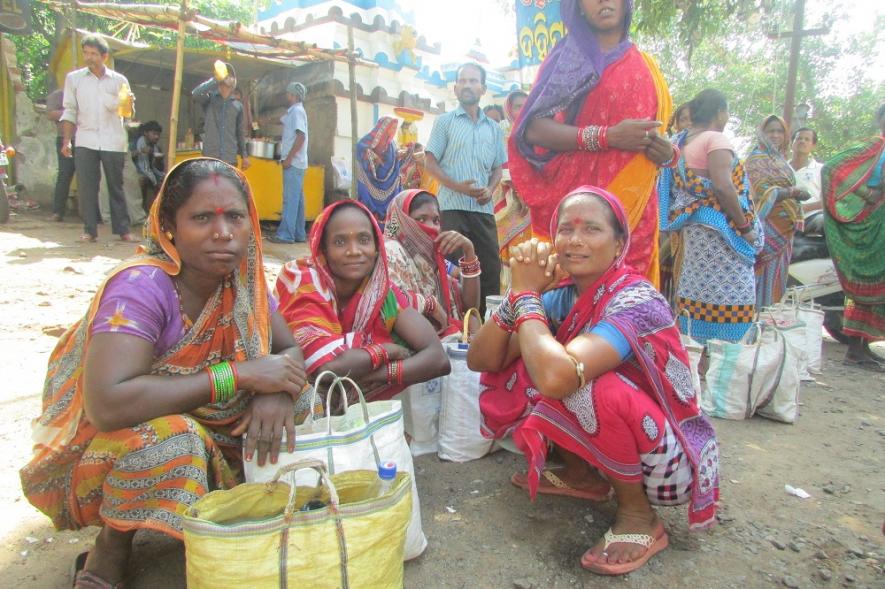Why an Urban Job Guarantee Scheme is Not a Bad Idea

Image Coutesy: The Better India
The announcement of the Urban Livelihood Guarantee Scheme as part of the people’s progressive agenda, which eventually may turn into what many believe as a ‘common minimum programme’ of the Opposition parties during the Lok Sabha elections, has raised quite a few eyebrows. The declaration has been followed by a string of critiques on how the envisaged scheme, allegedly (un)like its more effectual rural counterpart, MGNREGA, will only result in wasteful expenditure, and is emblematic of India’s failure to address inequality.
Whilst agreeing that the scheme will indeed be emblematic of the gross inequalities we face in urban areas, its declaration also fundamentally recognises the vagaries and insecurities in the urban livelihood opportunities that huge sections of our presently invisible city dwellers face.
Though unemployment and under-employment have always been electoral issues, but come voting day in 2019, it is believed that this will be more so. Recently, it was being debated frantically that the figures of unemployment and under-employment are amongst the highest in the past few years -- hovering around the 8% mark, the urban unemployment outdoing the rural one by a one percentage point, signaling the dire conditions in urban India, where secure livelihoods for some remains a genuine concern. The worst affected are the most marginal – informal sector workers who form 80% of the workforce living on hand-to-mouth existence -- the worker and her/his family falls into extreme vulnerability in case of uncertainties in the labour market or personal losses beyond their control and cannot recover from the ensuing debt cycles.
Take, for instance, the case of 20 million domestic ‘workers’ -- the household help or bai toiling in our apartments without any contract or recognition at work, minus any social security, and paid usually less than half a dollar an hour. They are exploited from the patriarchal-societal forces, knowing that there are no other options for women workers to get jobs. Domestic workers end up being completely dependent on the whims of employers for wage rates and fear losing jobs at the slightest bout of illness or any other emergency. Or let’s take the case of building and construction workers we see in early morning hours in labour nakkas, chowks or addas (depending on which part of country you are in), comprising over 50 million in urban India, who are paid poorly, with employment available sometimes only 10 to 15 days in a month.
This is the narrative for all the mostly marginal informal sector workers in urban, who will easily constitute more than 30 million in population, who are without any social security net and are forced to work for abysmally low wages, whenever they are able to find work. Do remember that they constitute the bulk of 800 million population of India who lives on mere Rs 20 a day.
These vagaries and uncertainties are only exacerbated by the erratic and erroneously employed macro-economic policies like demonetisation and goods and services tax that have the biggest negative impact on a host of informal sector livelihoods. So the National Employment Guarantee Scheme – if at all brought about -- needs to speak for the ‘bai’ or the ‘labour’ that we middle classes and dominant policy narrative fail to see, and act to support the hard-working urban workforce that might fall on hard times. It needs to have a fallback mechanism to keep their families safe, and continue to contribute as healthy workforce for our cities.
It is pertinent to note that the urban counterpart to the Mahatma Gandhi National Rural Employment Guarantee Act (MGNREGA) needs to be conceived differently to suit the dissimilar context. Keeping in mind that urban unemployment need not be restricted to unskilled manual labour, as faced in the rural space, such a scheme should also envisage providing livelihoods and developing common resources. The proposed scheme can also be merged or at least approached in synchronisation with the National Urban Livelihoods Mission and the various skill-building programmes that allow skill training as well as better livelihood opportunities, therefore becoming a means of empowerment and self-reliance to the workers.
At the moment, the skills building training has resulted in abysmal 15% placements and remain as numbers, without adequate chances of employing the newly earned skills. The scheme must also cater to the problem of educated unemployed, which is likely to be more severe in urban areas and less prevalent in the rural space. Therefore, the proposed Urban Livelihood Guarantee Scheme, should aim to strike at the root of this fundamental problem and ensure that able-bodied, and usually marginally skilled workforce is gainfully employed.
The scheme, if launched, could be a path-breaking initiative, recognising that our economic growth has still not trickled down to the margins and there are a substantial number of urban toilers who stand to benefit and get much-deserved support to lead a life of dignity and security. Also, the introduction of the scheme shall lead to better spin-offs like higher investment in public infrastructure, higher wage rates and an increase in women worker participation. This will also be in similar lines with a highly successful programme in China on urban livelihoods and other so-called developed nations in the West. High time, India followed suit.
Aravind Unni is the Thematic Lead for Urban Poverty Reduction in Indo-Global Social Service Society, New Delhi and Tikender Panwar is Former Deputy Mayor of Shimla.
Get the latest reports & analysis with people's perspective on Protests, movements & deep analytical videos, discussions of the current affairs in your Telegram app. Subscribe to NewsClick's Telegram channel & get Real-Time updates on stories, as they get published on our website.
























